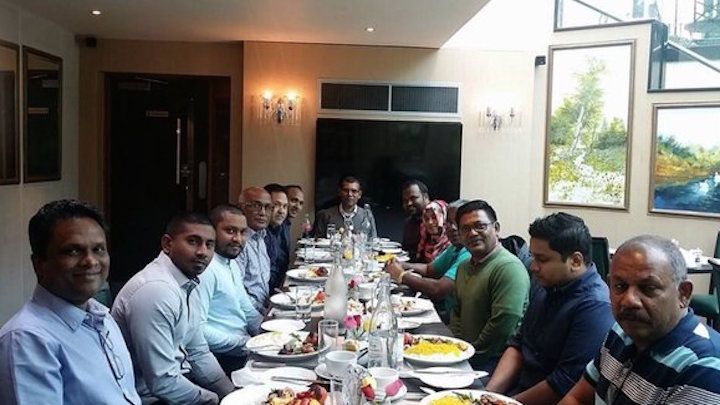Chaos islands
With the new opposition coalition’s first protest rally due to take place tomorrow night, a divided government now readies itself to face a fragmented opposition, setting in motion a battle for legacy in the Indian Ocean, writes Omkar Khandekar.

13 Jul 2016, 09:00
By Omkar Khandekar
Ever since Mohamed Nasheed came to Britain in January 2016, he has made a series of public appearances. His message has seldom wavered: Maldives, the archipelago that used to be a British protectorate, is now in turmoil. The country had seen 30 years of dictatorship before Nasheed’s Maldivian Democratic Party (MDP) swept into power. Now, it had reverted back to it.
On the chilly morning of 1 June 2016, as he took the stage at the non-profit Royal Overseas League in London, he was, in the eyes of the Maldivian judiciary, a “terrorist” on the run. But he wasn’t the only one who had fallen out of favour with the judiciary, and by extension, its President Abdulla Yameen. Sharing the stage with Nasheed were four members of the country’s political elite, each with a complaint of their own.
While the banner behind these speakers read ‘Maldives United Opposition’ (MUO), the four had more in common than a common enemy. Every one of them had played a crucial role in the coup of 2012, setting the stage for Yameen to take over the presidency in farcical elections the next year.
Become a member
Get full access to our archive and personalise your experience.
Already a member?
Discussion
No comments yet. Be the first to share your thoughts!
No comments yet. Be the first to join the conversation!
Join the Conversation
Sign in to share your thoughts under an alias and take part in the discussion. Independent journalism thrives on open, respectful debate — your voice matters.




